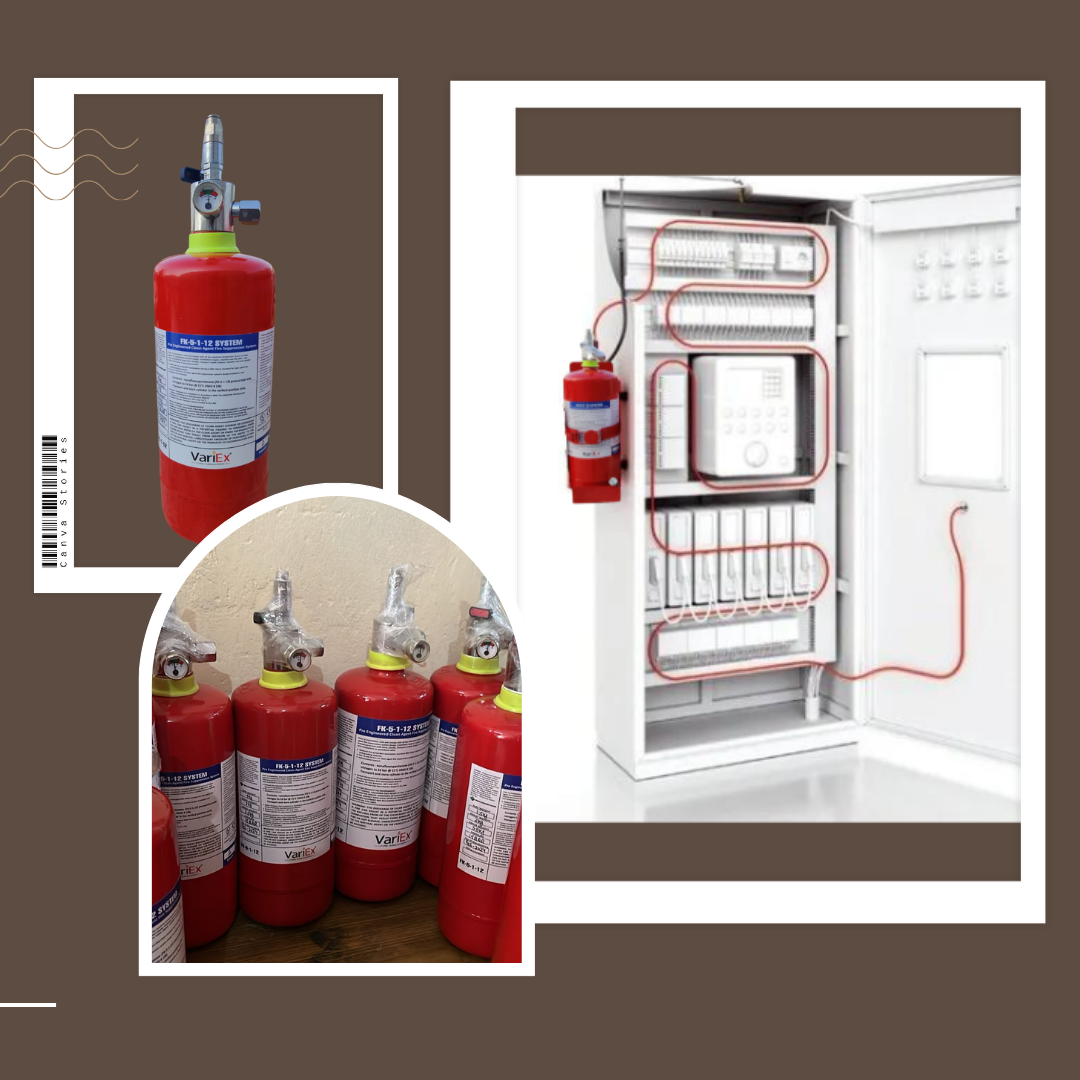![]()
Fire Immuniser
+91-7829629111
Email: info@variex.in
Varistor Technologies Pvt. Ltd.
Block-1, First Floor, Ardente Office One, Hoodi Circle, ITPL Main Road, Bengaluru, Karnataka 560048, IN
What Is The Use Of Fire Alarm
What Is The Use Of Fire Alarm
A fire alarm is an essential safety device designed to detect and alert building occupants to the presence of a fire or smoke. The primary purpose of a fire alarm is to provide early detection of a fire and to notify people so they can take immediate action, such as evacuating the building or alerting emergency services. Fire alarms are critical in minimizing injury, preventing fatalities, and reducing property damage during a fire emergency.
Here’s a closer look at the uses and importance of fire alarms in different settings.
1. Early Detection of Fire
The most critical use of a fire alarm is early detection. Fires often spread rapidly, and their effects can be devastating if they go unnoticed. Fire alarms detect indicators like smoke, heat, or gas (in some systems) and trigger an alert before the fire grows too large. This early detection is crucial in ensuring that occupants have enough time to evacuate the building safely.
Types of Fire Detection:
- Smoke Detection: Smoke detectors are triggered by the presence of smoke particles in the air. These are ideal for use in most indoor spaces.
- Heat Detection: Heat detectors respond to a significant rise in temperature and are used in areas where smoke detectors may produce false alarms, such as kitchens or garages.
- Carbon Monoxide Detection: Some advanced fire alarm systems also include carbon monoxide detectors, which can detect the dangerous build-up of this toxic gas that often accompanies fires.
2. Alerting Building Occupants
Once a fire is detected, a fire alarm sends a loud audible signal (such as a siren, bell, or horn) to warn people inside the building. This alert is critical for ensuring that all occupants are aware of the danger and can begin evacuating the building immediately.
In addition to audible alarms, modern fire alarm systems may also include visual indicators such as flashing lights or strobe signals, which help those who are hearing impaired or in noisy environments (e.g., factories, warehouses) to recognize the alarm.
3. Facilitating Evacuation
Fire alarms play a vital role in ensuring that people evacuate a building quickly and safely. By sounding the alarm in a timely manner, a fire alarm helps to:
- Initiate Evacuation Plans: A well-functioning fire alarm system is a key component of an emergency evacuation plan. People in a building can follow designated exit routes to safely leave the premises.
- Reduce Panic: The sound of a fire alarm serves as a clear and unmistakable signal, minimizing confusion and helping people stay calm during a potentially stressful situation.
Some advanced fire alarm systems also integrate voice evacuation systems, which deliver clear, pre-recorded or live messages that instruct occupants on evacuation procedures.
4. Alerting Emergency Services
Many modern fire alarm systems are connected to a central monitoring station or directly linked to emergency services (like the fire department). When the fire alarm is activated, the system can automatically:
- Send a Signal to Firefighters: This allows emergency responders to be notified instantly, even before the building occupants have evacuated.
- Provide Real-Time Information: Advanced systems may relay information about the location of the fire (e.g., which zone or area of the building) to help first responders arrive at the correct location quickly.
This rapid notification is crucial for minimizing the time it takes for emergency responders to reach the scene and begin firefighting efforts.
5. Preventing Property Damage
The faster a fire is detected and responded to, the less damage it will cause to a building’s structure and contents. Fire alarms help minimize damage by:
- Reducing Fire Spread: Early detection means the fire has less time to spread throughout the building, which can limit the overall destruction.
- Enabling Faster Response: Fire alarms allow fire departments to respond quickly, reducing the risk of fire spreading to neighboring buildings or areas.
In commercial buildings, protecting valuable assets, equipment, and inventory is a critical concern, and fire alarms play an integral role in safeguarding these investments.
6. Compliance with Fire Safety Regulations
Fire alarm systems are also a legal requirement in many countries, and their installation is governed by fire safety regulations. These regulations are designed to ensure that buildings are equipped with the necessary safety features to protect occupants in the event of a fire.
In the United States, for example, fire alarm systems must comply with National Fire Protection Association (NFPA) standards, particularly NFPA 72 (the National Fire Alarm and Signaling Code). These codes specify the installation, maintenance, and testing requirements for fire alarm systems in various types of buildings (e.g., residential, commercial, industrial).
Failure to comply with fire alarm regulations can result in fines, penalties, and increased liability in the case of a fire.
7. Protecting Vulnerable Occupants
Fire alarms are especially critical in protecting vulnerable individuals, such as:
- Children and Elderly: These groups may have difficulty evacuating quickly or may not be aware of a fire in the early stages. A fire alarm ensures they are alerted to the danger in time to evacuate.
- People with Disabilities: Those with mobility issues, hearing impairments, or cognitive disabilities may need special assistance. Fire alarms with visual cues or loud, clear announcements are crucial in ensuring everyone can evacuate safely.
In some cases, buildings are also equipped with automated door systems or assisted evacuation devices to help those who cannot evacuate on their own.
8. Monitoring and Maintenance of Fire Alarm Systems
Modern fire alarm systems often include self-monitoring features that continuously check the status of detectors, wiring, and control panels. This functionality ensures that any faults or issues (e.g., disconnected wires, battery depletion, or a malfunctioning detector) are detected early and can be addressed before a fire emergency occurs.
Regular maintenance is necessary to keep the system in optimal working condition. Some systems even send out maintenance alerts or status reports to building owners or facility managers to ensure the system is always ready to function when needed.
9. Reducing Insurance Costs
For businesses, having a well-installed and properly functioning fire alarm system can also help reduce insurance premiums. Insurance companies often provide discounts to businesses and building owners who have invested in fire safety measures, as this lowers the risk of extensive property damage or loss of life in the event of a fire.
Conclusion
The primary use of a fire alarm system is to save lives and reduce property damage by providing early detection and an immediate alert to fire or smoke. It plays a vital role in helping building occupants evacuate safely, notifying emergency services, and ensuring that fires are addressed before they can spread out of control. Fire alarms also contribute to legal compliance, vulnerable occupant protection, and fire safety preparedness, making them an indispensable part of modern fire safety systems. Regular testing and maintenance are essential to ensure these systems continue to operate effectively and provide reliable protection.
Explore our products Range
Final Say
At VariEx.in and VariexOnline.com, we specialize in supplying and installing top-quality fire fighting systems and equipment. From fire extinguishers to advanced suppression systems, we offer comprehensive solutions tailored to your needs. Our experienced team ensures precise installation and maintenance for optimal safety.
Trust VariEx for reliable fire protection. Contact us online or call 7829629111 to learn more.
"WHAT YOU CAN READ NEXT"
 Read more +24 November 2023 in Fire Extinguisher
Read more +24 November 2023 in Fire ExtinguisherWhat types of fire extinguishers are available for different fire classes?
 Read more +11 April 2025 in Fire Suppression
Read more +11 April 2025 in Fire Suppression













